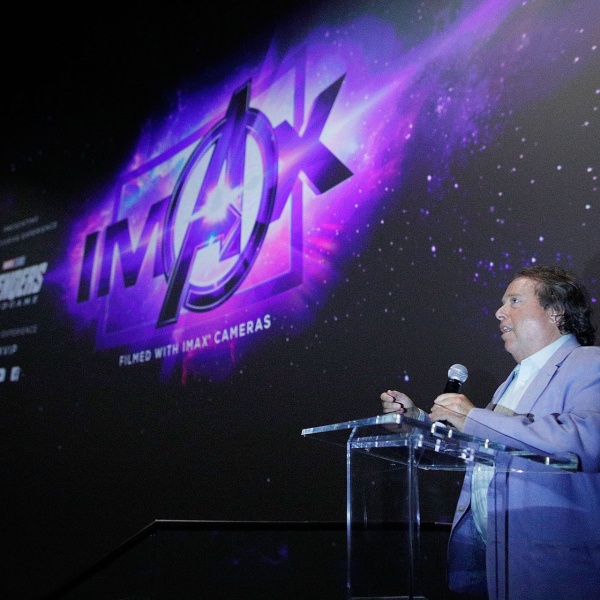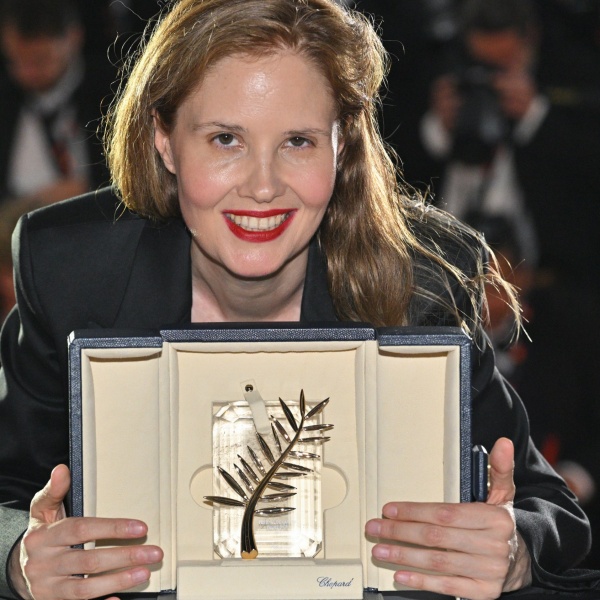Kohn’s Corner is a weekly column about the challenges and opportunities of sustaining American film culture.
Shame was never high on Warner Media Discovery CEO David Zaslav‘s priority list: Over the past 12 months, he buried “Batgirl,” yanked close to 100 titles from its streaming service, and threw a lavish party at Cannes in the middle of the WGA strike.
Yet in January, when I devoted this column to questions about the prospects for Turner Classic Movies at WBD, the company did its best to project a bright future. Zaslav loved TCM, the company’s general manager Pola Changnon told me. “We feel fortunate that in this new world, at the top, someone cares about us,” Changnon said.
That affection has its limits. After a handful of layoffs earlier this year, TCM lost its five senior executives this week, including Changnon and VP of programing and strategy Charles “Charlie” Tabesh, a 25-year veteran known as the network’s curation mastermind. More staffers were laid off later in the week; the TCM UK channel also closed. There has been discussion, now tabled, of eliminating post-film discussion segments.
Per usual in today’s rapid-fire media landscape, nothing stays settled for long. After an outcry led by no less than Steven Spielberg, Martin Scorsese, and Paul Thomas Anderson, TCM continues to be overseen by former Discovery+ executive Kathleen Finch, but at least some aspect of its fate now rests with Warner Bros. executives Mike De Luca and Pamela Abdy, the former MGM heads adored by filmmakers who see them as likeminded peers, rather than bean-counting executives. So… happy ending?
Not so fast. The De Luca/Abdy pivot is a short-term solution to a PR crisis, but it remains to be seen how much impact the pair will have. For now, reports suggest they have only been brought onboard to advise on TCM editorial and curation. What that means has yet to be defined. Another senior managerial role will oversee TCM as a whole, but that role remains TBD.
However, even if De Luca and Abdy secure greater managerial oversight, it’s hard to see how they might restructure a brand that has already been dismantled from the top. The treasured TCM Classic Film Festival has been reduced to a staff of two, Mark Wynns and Lindsay Griffin, while Tabesh’s programming team is comprised of three people: senior director Stephanie Thames, senior director Scott McGee, and coordinator Ben Cheeves. Sources tell me that while Changnon will not rejoin the company after the latest developments with De Luca and Abdy, Tabesh is still in the mix and may find a way back after this week’s events, if he’s guaranteed the kind of programming autonomy that enabled him to maintain the substance of TCM.
For now, the preeminent brand for classic film in America — only Criterion comes close to forging such reverence for the history of the medium across generations — has been reduced to a scrappy team tasked with serving an ambiguous agenda. Zaslav can love classic film all he wants, but a real hero would acknowledge the obvious: TCM needs a new home, not a tenuous slot inside a place with no tangible investment in its future. If that home is indeed within Warner Bros. Discovery, then its structure within the company must be reinvented to ensure its long-term sustainability.
That’s where the main problem continues to fester. WBD’s network marketing is now consolidated to a so-called “center of excellence” that oversees all its brands within the U.S. Networks Group. However, since TCM doesn’t run ads, it sits near the bottom of the list for that team. Even if it incorporates advertisement into its offerings, the core passionate audience would be comparatively smaller than the ones for other channels. Whoever leads TCM will have to carve a path out of this centralized structure so that the channel isn’t constantly pitted unfairly against the other brands.
The executives running TCM will also have to respect its curatorial agenda rather than pushing it toward the corporate mandates of the moment. After all, the decision to fire TCM’s top leadership made little sense in the first place: The brand’s value largely stems from the people who program for its devout audience. Ted Turner’s movie library gave birth to the brand decades ago, but much of what TCM airs is licensed from other sources. Its curatorial spice comes from a blend of comforting familiarity and ventures into the unknown: For every “Casablanca” or “Citizen Kane,” you’ll find a rare silent comedy or an underappreciated B-movie to prove that film history is a constant journey. The brand value lies in people with institutional knowledge and cinephile curiosity who give TCM the authority and authenticity that makes it into a “reputational asset” for the company.
By studio metrics, that’s a modest investment: I’m told the annual budget averages out to less than $45 million to cover everything from licensing fees to the festival and the salaries of the team. That’s a fraction of the production and marketing budget for “The Flash,” only this product delivers on the hype.
As my colleague Christian Blauvelt reported earlier, Spielberg, Scorsese, and Anderson hopped on the phone with Zaslav to express their concerns, and it seems they had a genuine impact. But this the “Avengers” assemblage of America’s most treasured auteurs might not have changed Zaslav’s strategy if he didn’t have pending business with at least one of them.
I’m told that Anderson’s mysterious next movie, rumored to star Joaquin Phoenix, Viggo Mortensen, and Regina Hall, has been set up at Warner Bros. Zaslav probably wants to keep that emerging deal in place, lest he repeat the mistakes of former WarnerMedia CEO Jason Kilar, who alienated Christopher Nolan with the 2021 day-and-date release strategy as the director fled his longtime studio home and set up “Oppenheimer” at Universal instead.
Zaslav is hacking at divisions across the company, so salvaging a PTA deal may not be his highest priority. The statement issued by the directors on Tuesday said Zaslav reached out to the men earlier this week, though multiple sources tell IndieWire that’s not true at all — Scorsese instigated the call through his non-profit The Film Foundation, a company that has been experimenting with streaming classic films through its website over the past year and might make more sense as a future home for TCM than any line item in Zaslav’s budget. So why did Zaslav get credit for the call? The statement attempts to let him calm the waters without having to officially issue any remarks himself. He outsourced a shield to the film community.
Let’s assume that De Luca and Abdy can stabilize some of the panic about TCM’s immediate. It will never find total security within the cold-hearted WBD ecosystem, so the same influential people who scrambled to save it this week might consider a contingency plan if anything like this happens again. One day, in a foreseeable future TBD, TCM could benefit from a new owner. But what would TCM even look like under new ownership? And how could it be set up to succeed?
In conversations with past and present staffers, it’s clear that TCM is not an obvious fit within the evolving streaming marketplace. The company’s newly rebranded streaming platform Max has a budget cap on the number of classic film titles it can post to the service at a time, and that narrow curation doesn’t address TCM’s core appeal as “a precious resource of cinema, open 24 hours a day, seven days a week,” as Anderson, Scorsese, and Spielberg put it in their statement. Its live-TV presence distinguishes TCM from the likes of the Criterion Channel, which has attempted to carve a path toward sustainability by entering the niche streaming market. On-demand streaming is not what TCM does best. Turn on the channel and the movies are always there for you.
However, there could be a future for this kind of never-ending curatorial approach that splits the difference between streaming and cable — one that could exist beyond the constraints of WBD if key stakeholders engage in some outside-the-box thinking and pony up.
While broadcast and cable seem less viable in today’s on-demand marketplace, the “always on” conceit remains contemporary among GenZers who get so much of their media diet from live streams on YouTube, Twitch, and elsewhere. These entities are also themselves OTT streaming services that can be experienced as live TV. A passionate investor could set up the TCM concept as a 24/7 channel within this ecosystem, continue to please the legacy audience and Hollywood royalty that treasures its existence, while ingesting new audiences in the process. The programming itself is a relatively inexpensive undertaking — it just needs the proper framework to thrive.
And hey, maybe De Luca and Abdy or the new TCM overseer to come might consider some version of this approach by making a live feed of TCM available to all Max subscribers. If they really wanted to solve the TCM problem, they would do it by fighting to ensure it has a prominent role in the company’s most visible line of business. More people might even tune in as a result.
For now, Zaslav has engaged in performative valiance by establishing a loose protective sphere around TCM rather than bidding it adieu in style. It’s impossible to make the case for a safe space at an organization so prone to abrupt cutbacks and reorganizations. Reality check: The call is coming from inside the house.
In any case, I’ve heard that outgoing TCM leader Changnon will remain at the channel until the end of August, just in time for the Telluride Film Festival, where TCM has maintained a robust presence alongside many of the festival’s classic film restorations for years. Whatever happens next, the community marches on.
As usual, I encourage readers to reach out with their thoughts on this week’s column: eric@indiewire.com
Last week, I looked at the implications of the French New Wave’s key directors dying off. Here’s one response I received among several.
“Jacques Rozier may not have been the last New Wave filmmaker – Alain Cavalier is still alive and apparently still active. Only his ‘Thérese’ (1986) ever had much success in the US, though a handful of his earliest, more traditional films featuring players like Deneuve, Piccoli and Trintignant had some US exposure. But his work for the past 35 or so year has been as off American radar as it is provocative, worthwhile and intriguing.” —Peter Scarlet, film programmer







